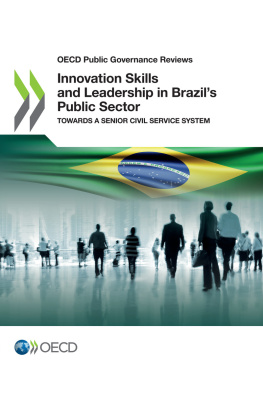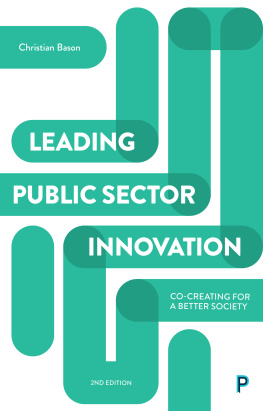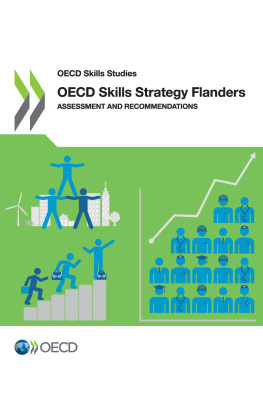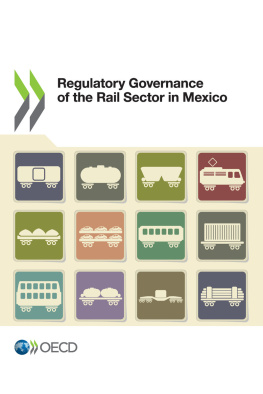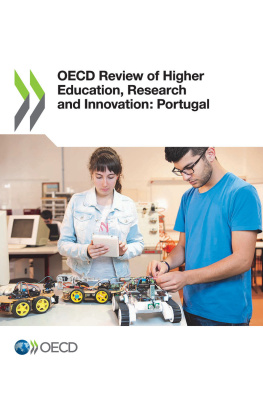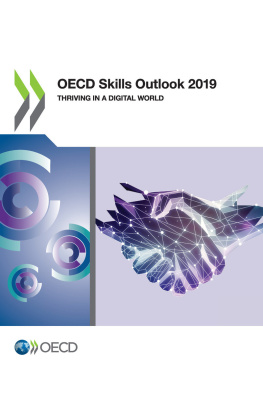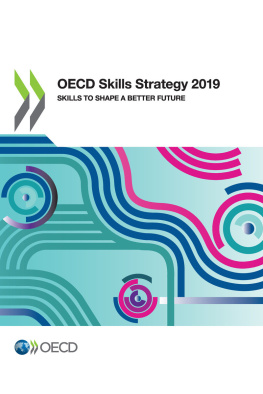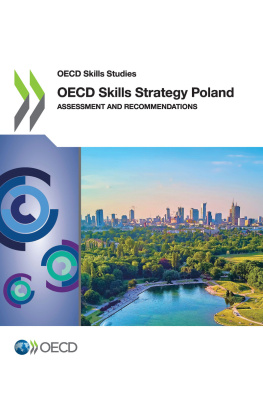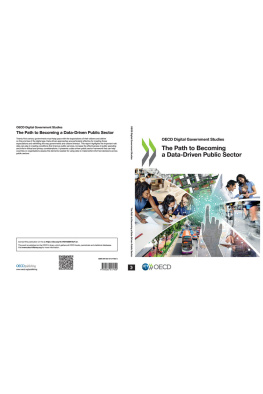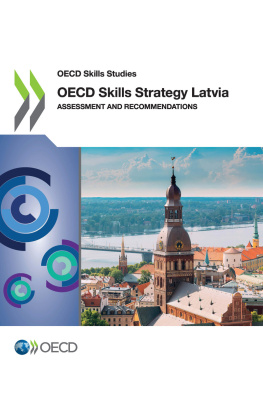OECD - Innovation Skills and Leadership in Brazil’s Public Sector
Here you can read online OECD - Innovation Skills and Leadership in Brazil’s Public Sector full text of the book (entire story) in english for free. Download pdf and epub, get meaning, cover and reviews about this ebook. year: 2019, publisher: OECD Publishing, genre: Business. Description of the work, (preface) as well as reviews are available. Best literature library LitArk.com created for fans of good reading and offers a wide selection of genres:
Romance novel
Science fiction
Adventure
Detective
Science
History
Home and family
Prose
Art
Politics
Computer
Non-fiction
Religion
Business
Children
Humor
Choose a favorite category and find really read worthwhile books. Enjoy immersion in the world of imagination, feel the emotions of the characters or learn something new for yourself, make an fascinating discovery.
Innovation Skills and Leadership in Brazil’s Public Sector: summary, description and annotation
We offer to read an annotation, description, summary or preface (depends on what the author of the book "Innovation Skills and Leadership in Brazil’s Public Sector" wrote himself). If you haven't found the necessary information about the book — write in the comments, we will try to find it.
OECD: author's other books
Who wrote Innovation Skills and Leadership in Brazil’s Public Sector? Find out the surname, the name of the author of the book and a list of all author's works by series.
Innovation Skills and Leadership in Brazil’s Public Sector — read online for free the complete book (whole text) full work
Below is the text of the book, divided by pages. System saving the place of the last page read, allows you to conveniently read the book "Innovation Skills and Leadership in Brazil’s Public Sector" online for free, without having to search again every time where you left off. Put a bookmark, and you can go to the page where you finished reading at any time.
Font size:
Interval:
Bookmark:
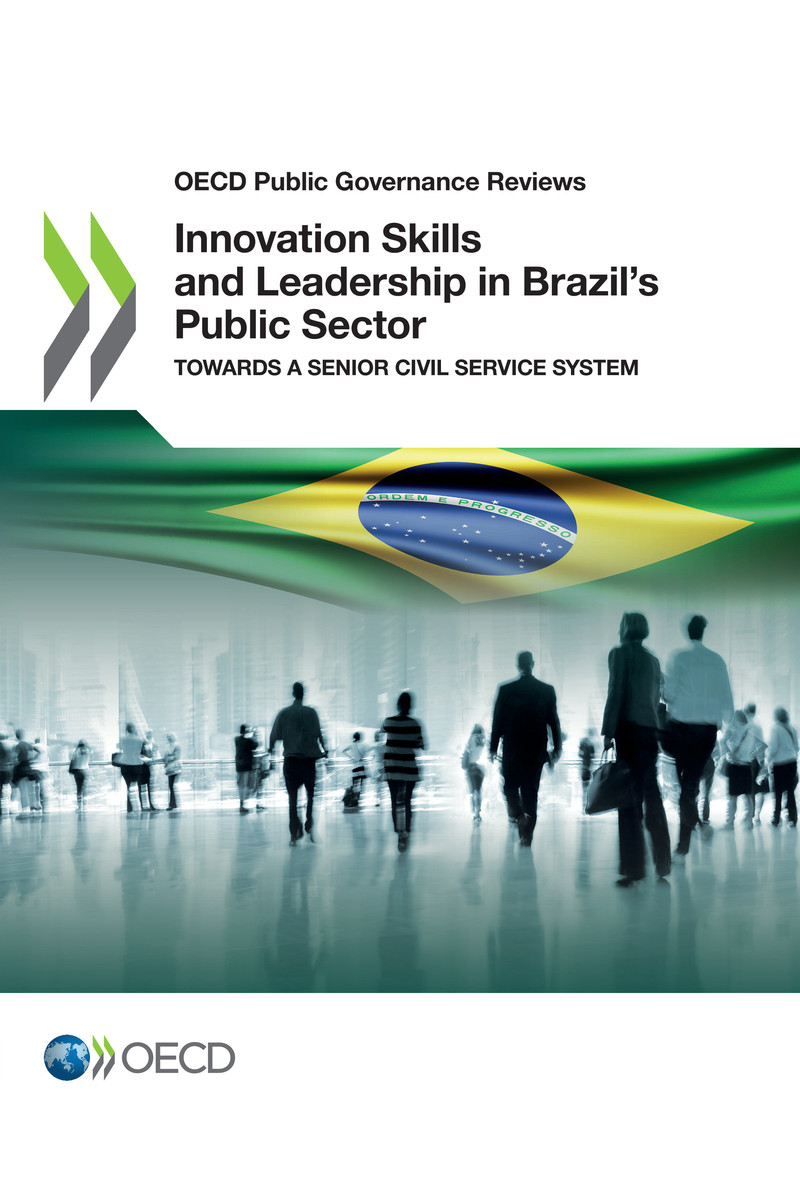
OECD (2019), Innovation Skills and Leadership in Brazil's Public Sector: Towards a Senior Civil Service System , OECD Public Governance Reviews, OECD Publishing, Paris, https://doi.org/10.1787/ef660e75-en .
Governments need to innovate to better address ongoing and emergent policy challenges and provide effective public services. For this to happen, the public sector needs to have access to the right capabilities including leadership skills.
OECD countries are increasingly introducing specific senior civil service (SCS) systems that ensure leaders are capable of achieving results. This study establishes a new assessment framework for SCS systems, based on the 2019 OECD Recommendation on Public Service Leadership and Capability. The framework looks at three aspects as they relate to public sector innovation: a) the necessary leadership skills, b) the available supply of these skills through competency mapping and development, and c) the demand for these skills through appointment processes and accountability tools.
The study uses data collected through surveys and workshops to identify skills gaps that civil servants perceive in their leadership, and identifies a set of needed leadership competencies gathered in consultation with Brazilian civil servants. The study also identifies an imbalance in supply and demand, with most of the existing initiatives aimed at building supply. The study recommends actions to better co-ordinate these supply-side interventions and to develop demand-side interventions such as merit-based recruitment processes (which a recent presidential decree has now made possible).
This study was conducted in parallel with, and complements, the companion study The Innovation System of the Public Service of Brazil: An exploration of its past, present and future journey. Together, they are meant to help Brazil develop a stronger, more deliberate approach to leadership and innovation.
The study also contributes to a broader debate on public leadership competencies in public sector innovation, and the systems needed to appoint the most effective people and support them in achieving results.
This study was prepared by the OECD Directorate for Public Governance (GOV), under the leadership of its Director, Marcos Bonturi.
This report was drafted by Cristina Mendes and Kevin Richman under the supervision of, and with contributions from Daniel Gerson, lead of the Public Employment and Management project. Edwin Lau, head of the Public Expenditure and Budgeting division, provided strategic orientations. Valuable comments and input were provided by colleagues in the OECD Observatory for Public Sector Innovation (OPSI) Marco Daglio and Alex Roberts. OPSI former colleague Supriya Trivedi designed the leadership skills framework, and former colleague Matt Kerlogue designed the beta version of the innovation skills framework used in this report.
This study also benefited from the insights provided by two peer reviewers: Simon Claydon, UK Revenue and Customs, and Chair of the Public Employment and Management Working Party, and Roland Edwards, US Department of Homeland Security.
Draft versions of this report have been shared and discussed with members of the Public Employment and Management working party (PEM), the Public Governance Committee (PGC), and the OECDs Global Network of Schools of Government. The report benefits greatly from detailed input from the PEM, which provided data and many rich case studies that are highlighted throughout.
The study benefitted from the inputs, reflections and contributions of numerous Brazilian stakeholders, obtained through interviews, discussions, workshops and correspondence. This study would not have been possible without the commitment and support of the Escola nacional de administrao pblica (ENAP) and their open and committed staff and Presidency members. We are particularly thankful for the unique assistance in collecting data and information, organising the teams fact-finding missions and workshops in Brasilia and providing feedback throughout the development of the review. The team would like to thank in particular Francisco Gaetani, Aline Soares, Diogo Costa, Guilherme de Almeida, Paulo Marques, Fernando Filgueiras, Diana Coutinho, Regina Souza, Marizaura Cames, Pedro Vilela, Rafael Cedro, Luna Viana, Joo Guilherme Granja and Jeanne Lina.
The OECD also expresses its gratitude to the Ministry of Economy (Ministrio da Economia), then Ministry of Planning, Development and Management (Ministrio do Planejamento, Desenvolvimento e Gesto), for its cooperation and input, in particular Gleisson Rubin, Luis Felipe Monteiro, Wagner Lenhart, Joelson Velloso, Soraya Brando, Tito Froes, Luanna Roncaratti and Rodrigo Machado Molina.
Special thanks to Elisabeth Huggard and Javier Gonzalez for their administrative support and to Liv Gaunt for editorial assistance.
The Government of Brazil is currently tackling a core leadership challenge: improving civil service capability, productivity and innovation. This, in turn, requires a reconsideration of the skills and competencies needed in the senior ranks of public administrations, as well as an analysis of the mechanisms that reinforce these skills and competencies, and an evaluation of the incentives to innovate.
In Brazil, appointment criteria are neither systematic nor comprehensive, and often not based on technical or managerial standards for management positions. This presents risks for public innovation and, more broadly, for the quality of public policies. Initial steps have been taken to address this issue. A 2019 presidential decree establishes some minimum criteria for these positions and enables selection through merit-based processes.
Font size:
Interval:
Bookmark:
Similar books «Innovation Skills and Leadership in Brazil’s Public Sector»
Look at similar books to Innovation Skills and Leadership in Brazil’s Public Sector. We have selected literature similar in name and meaning in the hope of providing readers with more options to find new, interesting, not yet read works.
Discussion, reviews of the book Innovation Skills and Leadership in Brazil’s Public Sector and just readers' own opinions. Leave your comments, write what you think about the work, its meaning or the main characters. Specify what exactly you liked and what you didn't like, and why you think so.

